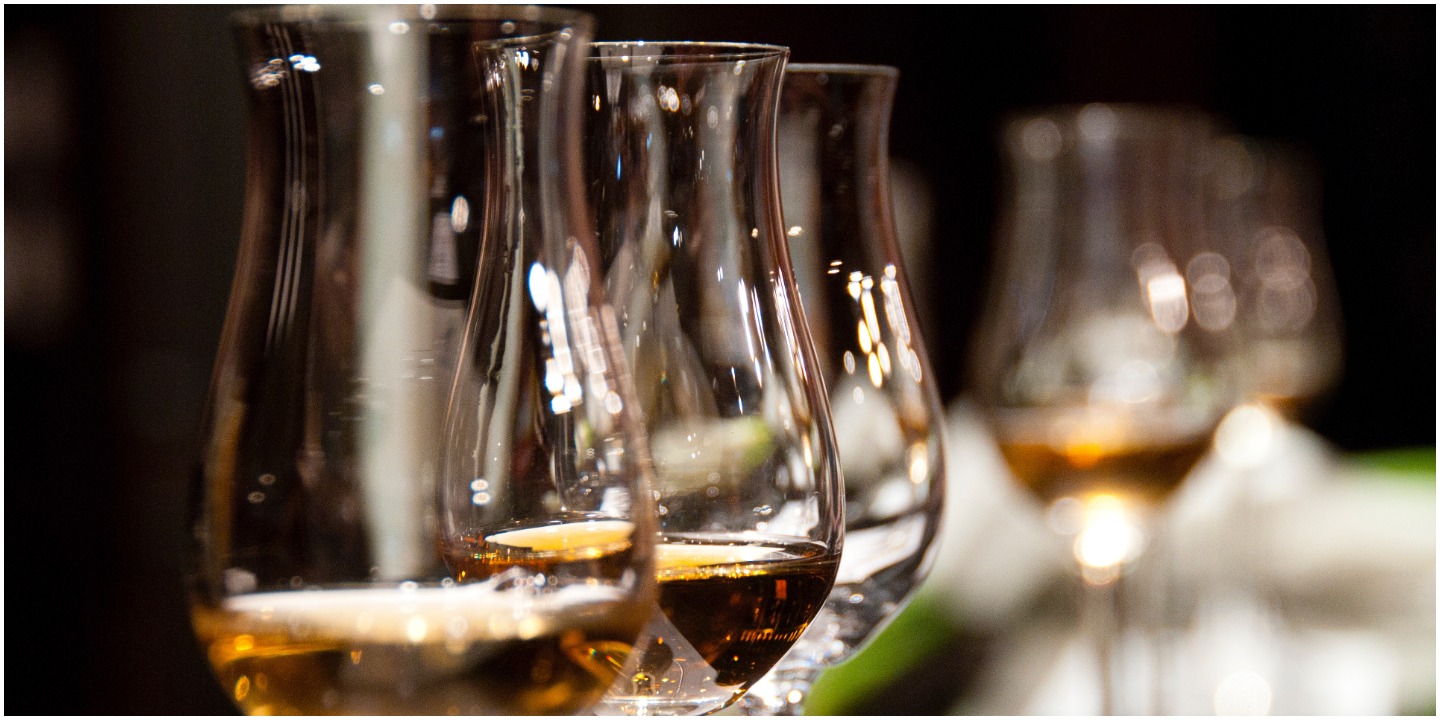Ask Whisky Foundation: is older whisky better?
Learn Whisky
If you’re new to the world of single malts, then you may be working under the assumption that the older the whisky, the better it is. In fact, until very recently, ‘is older whisky better?’ wasn’t even a question that needed asking; older bottles were held in much greater regard than their whipper snapper younger cousins.
That’s not for no good reason.The logic behind this is completely understandable: whisky develops its flavour and complexity from time spent in the cask, so it stands to reason that the longer a whisky has spent maturing, the more flavoursome and complex it is. (We’ve talked in a lot of detail about the effect of casks on whisky, if you’d like to find out a little bit more.)
This logic has been pushed by a lot of distilleries, too. In 2010, Chivas Brothers launched a campaign entitled ‘The Age Matters’, which tapped into the subconscious connection between age and quality.
Here’s a little snippet of that campaign (beware, it has all the subtlety of a brick).
This campaign was based on a study of over 2,000 whisky drinkers, a study during which over 90% of those questioned believed that ‘age is an important indicator of quality’ and, more specifically, ‘older whiskies are superior’. In fact, 89% of those questioned actively looked for an age statement when buying their whisky.
As Lew Bryson says in his book Tasting Whisky:
‘Before about 1980, almost every whiskey was sold without an age statement, and most of them were sold for making cocktails. When distillers began bottling single malts and single barrel bourbons, they were more expensive to make, and that difference had to be explained to the consumer…
Eventually things got carried away; consumers became convinced that older was better, and then that even older was even better…eventually that led to currently climbing prices for 15-plus year old whiskies, without much regard for any other qualification.’
Turning tides
In recent years, whisky has had a bit of a boom. Demand for premium whiskies has shot through the roof and whisky is being bought at a rate that is impossible for distilleries to keep up with. Put simply, there can only be so much 25-year-old whisky before it runs out and – because it takes so long to mature and develop its character – distilleries can’t flex and shift to meet demand. In real terms, they became victims of their own success – the demand was starting to far outweigh the supply.
Hence the widespread introduction of NAS – or no age statement – whiskies. For example, in 2013, Macallan introduced the 1824 series – a NAS series for all of its whiskies under 18-years-old.
Of course, the party line on the 1824 series NAS whiskies had nothing to do with shortages and economics, but with getting away from an old-fashioned idea of whisky quality and allowing distillers to experiment and be creative away from the shackles of age statements.
Speaking on the subject of NAS expressions, Chris Morris, master distiller for Brown-Forman, says:
“We do not believe in age statements in any of our whiskeys at Brown-Forman, because while there’s nothing wrong with a whiskey declaring its age, an age statement as we know specifically from the great Scotch whisky industry can be used against you. And an age is just a number; it doesn’t say the whisky’s any good.
“The consumer thinks the higher the number, the better the whisky. So, by not having an age claim we are asking the consumer to try the whiskey and judge it on its flavour and not on an arbitrary note.”
And, while that should be taken with a pinch of ‘that sounds a lot like marketing’ salt, there is a great deal of evidence to back it up.
If you read our tribute to the late, great Dr Jim Swan, you’ll know that he was revered by distillers for his ability to produce young whiskies with the mature and well-balanced flavours associated with much older whiskies. An alchemist of the Scotch industry, Dr Swan understood whisky on a molecular level, giving him the ability to fine-tune every aspect of the distillation process and produce whiskies as fine as any age-statement whisky in a fraction of the time.
It’s also important to remember that whiskies from overseas – India or Taiwan, for instance – require far less time to mature than those distilled in the British climate. In Scotland, evaporation of Scotch happens at around a rate of 2% per year (this is known as the Angel’s Share), but in Taiwan it happens at a rate of 12% a year. In that heat, whiskies mature at a much faster rate and take on the flavours of the cask much quicker. Leaving a whisky to mature for 25 years in the Taiwan heat won’t just result in a whisky that’s imbalanced and lacking nuance, but a cask that contains a fraction of the whisky it started with (and some very drunk Taiwanese angels…).
Ask the experts: is older whisky better?
Recently, ScotchWhisky.com published ‘Can Single Malt Whiskies Be Too Young?’. They asked two experts their thoughts on young vs old whisky. Here are a few choice quotes (but if you’ve got a few minutes spare, it’s worth checking out the whole article):
George Keeble, Soho Whisky Club:
‘The reason I enjoy drinking young whiskies is because they often give one a clearer picture of the distillery’s character, offering an insight into its malty bone structure. Sometimes, with older whiskies, the distillery’s character is all but lost, with the wood dominating the vast majority of the overall flavour.
‘There is also peated whisky to consider. Having worked in a whisky club for several years, I can safely say that those who enjoy peated malts will usually opt for a young whisky. The peaty aspect of a whisky usually dissipates over time, with the flavours of oak taking over. Comparing young Caol Ila with older expressions offers a prime example of this.
He also added:
There is no wrong answer to this debate. Old malt and young malt are two very different beasts indeed. And while I wholeheartedly concur with the phrase “the wood makes the whisky”, I also believe that a little age can go a long way.
Darren Leitch, The Whisky Shop
Unlike George, Darren isn’t sold on younger expressions:
‘I used to think if anywhere could get away with releasing their whiskies young it would be Islay, allowing more of the strong smoke to come to the fore. However, with so many out there I’m beginning to have second thoughts. Too many show signs of under-development, being too hot, acidic or spiritous, and with not enough balance. Don’t get me wrong, I have tried exceptional young whiskies from most distilleries and consumers should be aware that they do exist. But the majority needs a bit more time to develop.’
The WF verdict: is older whisky better?
We’re going to sit on the fence massively here: it depends.
We’re not going to tell you that the age of whisky is irrelevant, because – as anybody who has tasted an 18-year Macallan will tell you – that’s simply not true.
But we’re also not going to tell you that age is all-important. We’ve said it before, but at Whisky Foundation we’re all about getting away from the stale image of whisky drinking. We’ll keep the good bits, but we’re trying to trim away some of the crusty connotations that come with whisky drinking.
And obssession with age-statements are a part of that crusty image. They’re important, but not all-important.
Here at Whisky Foundation, we’re more interested in the cask, the bottler and the process that the whisky has been through to develop its character and distinct profile, regardless of whether that process took 5 years or 30.
Not convinced? Why not take a trip out of your comfort zone and try a few young independent bottlings? We guarantee you’ll be a convert in no time.



